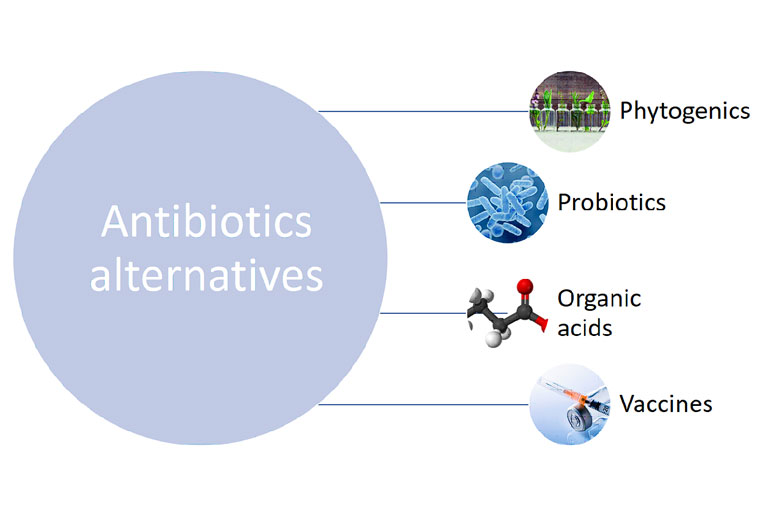11 Apr HEALTHY LIVESTOCK Project

Modern poultry production systems often constrain natural poultry behavior and may result in health problems which in turn necessitate the use of antibiotics under veterinary prescription. Within the European Union (EU) there is increased pressure to limit if not prohibit the use of antibiotics for prophylactic as well as metaphylactic purposes in food producing animals.
This situation has encouraged increased attention to be placed on farm biosecurity and stock management improvement as well as the appraisal, development and in-field use of non-antibiotic alternatives (NAA) such as organic acids, exogenous feed enzymes, prebiotics and probiotics, as well as a variety of phytogenic products.
The selection and usage of most NAAs commercially available as feed and/or water additives is often not precisely targeted to the particular health issues historically encountered on a specific farm or group of farms. Instead, they tend to be added to the feed or water as a matter of routine by feed manufacturers or farmers with very little prior discussion with the farm veterinarian on the best choice for the particular farm circumstances. In this study ten commercial broiler farms, in Cyprus and Greece, with relatively high historic reliance on antibiotic use were selected to be monitored for both antibiotic usage and biological performance, before (pre-additive production cycles) and after (post-additive production cycles) the targeted application of feed and/or water NAAs. Prior to this, the same farms were also involved in biosecurity improvements implemented after audits carried out following the Wageningen BiosEcurity Assessment Tool (BEAT). The post- additive production cycles compared to the pre-additive production cycles indicated that NAA use was accompanied by a 50.3% decrease in the number of antibiotic treatments (p<0.01), a non- significant 21.4% reduction in the days of treatment as well as a 5.7% improvement in biological performance as measured by the European Production Efficiency Factor (EPEF) (p<0.1). More substantial improvements were also noted when the post-additive production cycles were compared with the pre-additive production cycles before the biosecurity improvements implementation. In this case the antibiotic treatments were shown to have decreased by 58.7% (p<0.01), and this was accompanied by a 52% decrease in the days of treatment (p<0.01) as well as an improvement of 16.9% (p<0.01) in biological performance as measured by EPEF. On the basis of this work, it may be concluded that the targeted use of feed and/or water additives when based on the specific farm health issues historically encountered can improve the biological performance and in parallel reduce the use of antibiotics in broiler farms.



